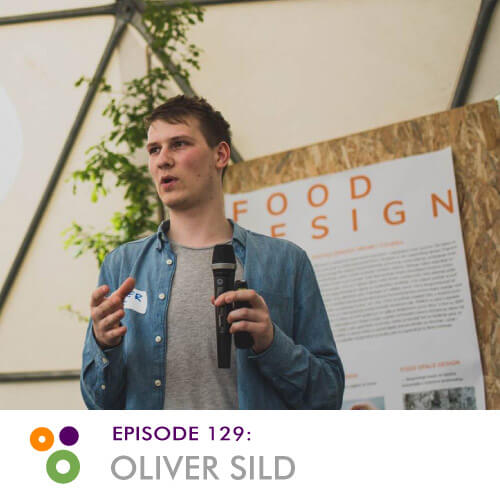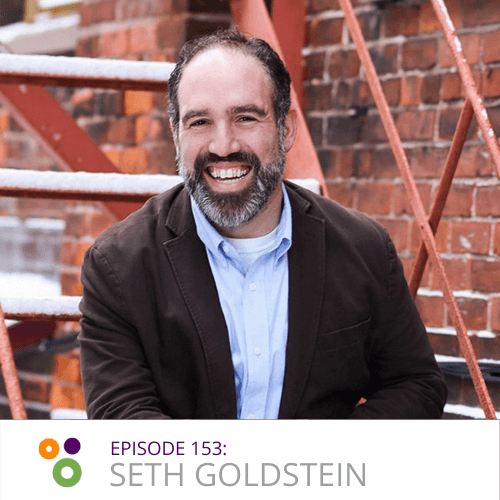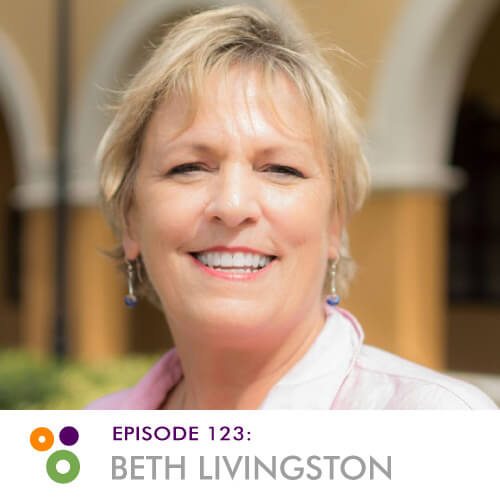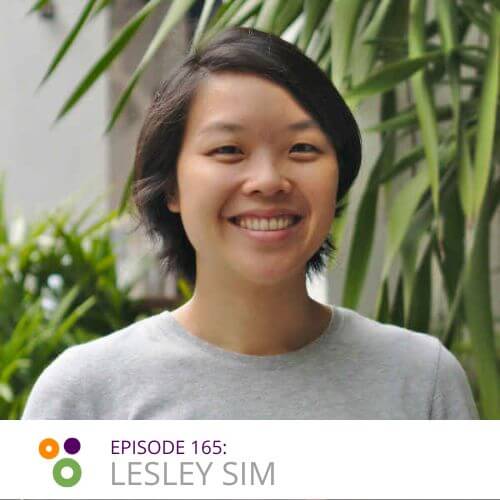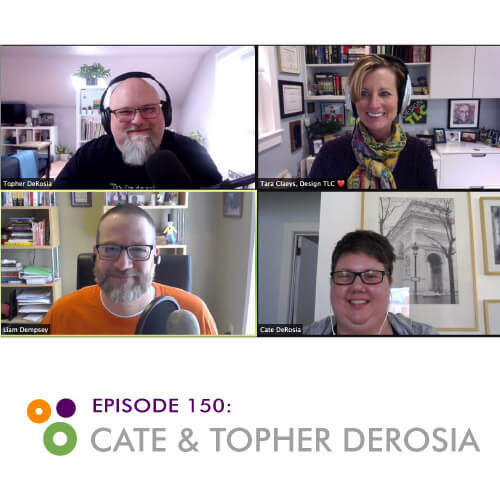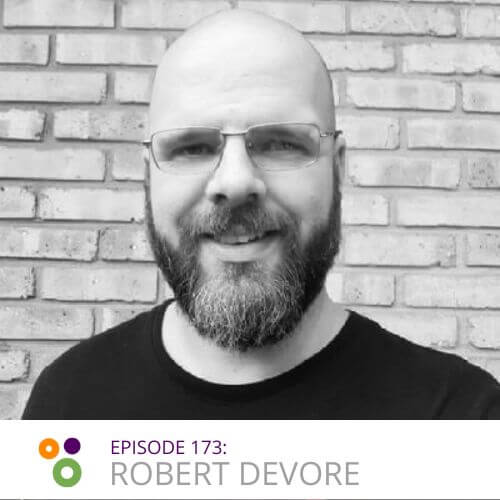Episode 38: Patte Shetler

Podcast: Play in new window | Download
Subscribe: RSS
Introducing Patte Shetler
Patte started her WordPress business, Unique Site Helper, three years ago. She loves to figure things out and she loves the WordPress community.
Show Notes
Website | Unique Site Helper
Twitter | @pshetler1
Episode Transcript
Liam: This is Hallway Chats, where we talk with some of the unique people in and around WordPress.
Tara: Together, we meet and chat with folks you may not know about in our community.
Liam: With our guests, we’ll explore stories of living – and of making a living with WordPress.
Tara: Today’s show is brought to you in part by Liquid Web.
Liam: We sure know that there’s a lot of choices when it comes to hosting your WordPress site. Liquid Web is the manage WordPress partner you’ve been waiting for. Whether you’re a business owner, an agency, or a freelancer, Liquid Web has you covered when it comes to performance, uptime, and ease of site management.
Tara: And one of the things we love most, when your content goes viral, Liquid Web doesn’t charge you more for huge spikes in traffic. Transparent pricing, no surcharges.
Liam: Liquid Web is offering Hallway Chats listeners 33% off for the first three months. Go to Liquidweb.com and use the coupon code, HALLWAYCHATS, all one word, to sign up.
Tara: And now the conversation begins. This is episode 38.
Tara: Welcome to Hallway Chats, I’m Tara Claeys.
Liam: And I’m Liam Dempsey. Today, we’re joined by Patte Shetler. Patte started her WordPress business three years ago. She launched a website at Uniquesitehelper.com to have a web presence and to show that she was legitimate. She loves to figure things out and she says that she loves the WordPress community. Hi, Patte.
Patte: Hi, Liam. Hi, Tara.
Tara: Hey, Patte, welcome. Glad to see you here. Can you tell us a little bit more about yourself, please?
Patte: Yes, thanks for having me on. I’m Patte Shetler, I work from home in Sewickley, which is a little north of Pittsburgh. I retired from corporate America about three years ago and was trying to figure out what I would do to keep moving forward in technology. So I opened up a little website business and I would say I’m a website implementer. I listened to a lot of podcasts, including yours from episode one, and I started out with Carrie Dils about three years ago.
Tara: Great. I think that I met you through Carrie Dills’ Office Hours, through her podcast commenting or something like that. We met through Carrie Dills, so we can thank Carrie for knowing each other and having you here today. What did you do before you started your agency and working with WordPress?
Patte: I worked in infrastructure for years on the back-end of data centers and move data centers. I was Unix admin and then I moved up through security devices and all of that. And then at the very end of my career, I ended up being a project manager for hardware and software.
Tara: So you’ve never been intimidated by technology? It sounds like you’ve kind of been on the leading edge of technology even before technology was a thing.
Patte: Some places that I worked had very old technology, like financial institutions. But everything that I owned, I literally tore apart. My first PC I took apart, my first iPad, my first, what were they called, shuffles? Took those all apart just to see if I can get them back together.
Tara: Wow, that’s impressive. Is that how you approach WordPress, as well?
Patte: No. I really couldn’t figure out WordPress when I first started. It looked like a framework and then I jumped right into Genesis, which was the framework on top of that. And how did that all fit together? I struggled a little bit when I first started. The reason I love the WordPress community so much is I would be able to reach out to somebody and they would help me through getting that website up and running.
Tara: Yeah. And how did you discover Genesis as part of that, then?
Patte: That was through Carrie Dills because she had some courses on Lynda and I went there and then I bought the StudioPress Bundle and that’s where I actually started.
Tara: You’re growing your business now and working on your own, how are you finding self-employment and growing your agency. How’s that working for you?
Patte: Well, I have to keep growing in air quotes because I really don’t want to grow it that big, as I said, I wanted just a web presence and I only take on people that are nice and that I want to work with. Because, when I initially started out, I made those same mistakes that everyone else did. Work for a friend, do something for free, do it pro-bono, and I did not do what everyone advises you to do. Setup a statement work, a contract, limited time, and then when you step away. I made those mistakes.
Liam: Yeah, those mistakes are really commonplace and it’s so interesting to hear, we’ve all made them. I know I’ve made them, and Tara’s told me in conversation she’s made them too. It’s really interesting, the human side of things where we know on paper, don’t do that, and then we get into it, and then, sure enough, we all do it. That’s interesting. How quickly were you able to realize that you were doing it wrong and to make adjustments? How quickly did you get yourself out of that?
Patte: I didn’t think I was doing it wrong. I’ve come out of corporate America, I’ve seen a ton of statements at work, I approved a bunch of contracts, I had to pay invoices. So I knew better and I thought, “Oh, I don’t need this. No one’s going to take advantage of me. I was just very trusting about it.” And I would hear the challenges that small businesses would have, and I would just think, “Oh, that’s not going to happen to me.” This last year, it happened twice to me. I thought I can’t move forward in the way that I have been doing this for the last year or so.
Tara: That’s interesting because you’d think coming from that corporate background that you have, that that would have been something that you would have had experience with in terms of having systems and things like that. Are you implementing those now because of the experiences that you had last year?
Patte: Yes, they’re all implemented. I think they were there, to begin with, and I just ignored them but I didn’t provide somebody with a statement at work, or I didn’t write the requirements down. Now, even when I’m setting up a site for a friend, I’ll write down a little statement and say, “This is what we’re going to deliver.” At this point, I grab a date and I say I’m done. Then I will say, just like I’ve heard many, many times, “In 30 days, if I don’t hear from you with content, or 90 days, then you have to come back into the queue in order to be considered to go live.”
Tara: Yeah, it’s hard to do that, to be firm and feel like you’re still being nice. Especially when we’re working for ourselves and we’re often times working with friends, or friends of friends, or people who become friends because you are meeting them in person, perhaps. It’s hard to make it format because it makes it seem so unfriendly sometimes, but what you realize after you’ve had bad experiences is that you’re avoiding the bad feelings down the road by facing that little bit of discomfort and formalizing it at the front-end. I think that you’re going in the right direction and making that decision now.
Patte: I also think in corporate America, I had that buffer, there was always an attorney there or you had your customer support people that you could always– they would always be buffering it before it got to me as the developer or the manager or the project manager later in my career, that I just assumed that that would be still happening. Now you have to wear all these hats and you have to have that legal piece and your accounting piece all set up in your business.
Tara: That’s a good point. Liam, did you have something?
Liam: Yeah, I’ve just wondered about the way that you transition, the lawyer would pipe up or the senior product manager would pipe up and address these concerns in your previous career and you didn’t have to. I wonder if you find yourself taking any communication-style lesson, then? My experience is that a lot of problems that we face as small-business owners can be addressed through proper and early and consistent communication. I wonder if you’ve had the same experience and if so, what kind of tools or techniques or lessons have you learned that make it a little bit easier for you now?
Patte: On the communication side, because I was a project manager, I would always have a style in place. I’d always ask the managers, “How do you want to get this information?” It would either come through the project– of course, it was Microsoft Shop, the notes would go up there, the memo would get out. And then if the senior managers wanted to know by meeting what the status is, that’s what I would do. I always ask the customer and client now, how do we communicate. If they have no idea, then what I’d do is put a framework and say, “Well, once a week, how about I send you a status update?” And I set up a call to talk every two weeks because that way you’re getting in front of them and pushing them for whatever you need, content or decisions on the statement of work that you’ve provided or where are you. I always ask, and this was another mistake I made last year, was I always asked that client, “Are we still on track? Are we still doing what you wanted to have done?” Because a lot of times when I get in there and they see that site or they see the way that the structure is, they no longer want that. If you don’t ask that, then you start to have communication problems. I have a very structured style of how I reach out to them.
Liam: Yeah, that last point you made, Patte, around clients pointing you in one direction, if you will, offering guidance about where they go, and then once they start to see things, their views change. That’s something I’ve experienced as well, is small-business owners are required to focus on so many different tasks and the mental and intellectual effort that they put into their website kind of ramps up, right? They get excited by the launch but they don’t really think about the ins and outs of what they want and need until it starts to come together. That can be a challenge to encourage them to intellectually invest early so that it doesn’t cost more later on when they say, “No, no, no. I don’t want to do that at all.” Well, yeah, but here we have four emails where you said this is exactly what you want. So we’ve put the time there and we can change it, it’s early enough but there’s a cost there. As you’ve been rolling these out, these changes and these edits to your flow, have you noticed any kind of positive outcomes or smoothing of communications or projects going more swimmingly?
Patte: They have. But as I said, I don’t have a big volume so it’s easy enough for me to manage that. It’s mostly about managing those expectations. We struggle with that. I’m also in the situation where I am learning and trying new things so I need to make sure that I don’t pull the whole thing off the rails by saying, “Hey, this is a really cool thing I can put in here.” Or, this is a different way you can make a payment and change it for them, right? I have to, and I think it’s– to advise the client, you have to make sure that you go right back to that statement at work and I hate to say this, but I go back to the old way of filing, each client has a file with a little notebook. From the day I start with them and I’m writing notes, and I go back to that statement and I will update it if something changes. I always put three small changes and then if we bring in any major change, then it’s a change management request. A lot of people will say, “Oh, we’ll move that to phase two. That was a lovely thing that we did when I was in corporate.”, “Oh, we can’t do this.” In order to say no, we would say, “Okay, we’ll move to phase two.” And we would never get there, right? It would just drag on and on until that project wasn’t budgeted anymore. Well, this is a very different approach now with the client because you are building a professional and personal relationship sort of with them, and you’re going to the same small-business network meetings often, or you see them– I live in a very small town and you see them, and you just can’t duck away from that so you have to make it very clear that there is an ending to this.
Liam: Yeah, that’s a really good point, that finality, in a good way finality. I’m going to change gears a little bit on our conversation and I’m going to take us to a question about your definition of success. Can you share with us what is your personal and your professional definition of success, Patte?
Patte: My personal definition of success is to get through a day without being just negative and pessimistic. I fight that all the time and you have this negativity coming from– you could be working with a client, or watching the news, or in some Slack channel and somebody just pulls you down in this mood. And I don’t want to end my day that way. I start my day by looking at something very positive. I look at it again when I’m doing my exercise in the middle of the day, and then I do it again at night. Then when I’m done for the day, I pull that into my personal side. I’m making a conscious effort to be kind to everyone that I’m talking to. That’s typically family, your spouse, anyone that’s irritating you. That is my goal now for every single day.
Tara: What are those tools that you use? What do you look at to remind you to be positive?
Patte: I look at a lot of positive quotes during the day. I use Panda Planner where I look at– there’s a 30-day check-off for your habits. I look at that every day. And if I’ve slipped then I don’t put a check there but I try to work toward that particular habit.
Tara: Yeah, I like that. Do you set a little alert on your calendar or something to say, “It’s 12 o’clock today, think of something positive.” Is it that organized and structured?
Patte: It is that organized and structured. I started that this year because of beating myself up from last year for not having that structure. You had mentioned, Tara, that you looked at the 12-week book thing. I’ve done that last year in order to train for a race and it was very good to break your year up into those quarterly sections. I’m doing that with my personal and professional piece, too, this year.
Tara: Yeah, me too. I find that goals are more tangible when they’re in a shorter distance from where you are right now. Makes you work harder towards them and accomplish them, I think.
Patte: I think it helps your focus.
Tara: It does, for sure. You have your personal goals, I know you’re interested in fitness. What are your business goals for your business then, in terms of that 12-week year planning?
Patte: It was to setup– and I’ve always worked with an accountant, but to actually look at what the financials are. What is profit and what are my expenses? Before, I just kind of approached it with– it was pretty lackadaisical. I waited my last year of work in corporate and I saved all that money so that I could set up my business, but I allowed myself being in semi-retirement to go down different rabbit holes. I would try to figure things out. I would always listen to office hours so I offered to Carrie, “Why don’t you let me do your transcripts?” I think I did the same for you when you guys first started to provide a service back to you and have some filler work. But I really wasn’t looking at that as all the income. I was just kind of, “Okay, there will be some here and there while I’m working on websites.” But I wasn’t focusing. I purposely wasn’t doing that so that I give myself time to make that adjustment. At the end of last year, I looked at SEO and have been offering a little bit of those audits reports and really looking into that. That is a constant changer. You have to be on top of that every day. You know the struggles around that. I also have a piece of my quarterly income around at least one SEO clients. I have four of those this year and we’ll see where that lands.
Tara: Yeah, that’s a big learning process, you and I have talked about that. We’ve been involved in some projects for SEO and I know Liam’s also been doing some more SEO work as well. It seems to be the burgeoning side of a web agency now is that you really need to know how to do that and incorporate it into what you’re offering in order to grow your business. That sounds like a good goal to have. Towards that goal, you’ve already talked about your positivity planning throughout your day. Would you say that’s the most important things that you do every day, or are there other things in your day that you find are most important, and/or also that are your favorite things to do?
Patte: Well, it is my most important and it is my favorite because I’m hoping that it would change my outlook over time. They say, “If you do something for 28 days, it becomes a habit and that changes.” I also like to make time to learn something every day. If I can’t get a particular training video in or an article in, I’ll save it for the end of the day but I make sure that whatever is on that week, projection gets finished. That’s somehow difficult to do when you’re tired at the end of the day, or tired in the morning. I’m stuck with that as well.
Tara: Adding professional development into your schedule, it’s always the last thing to come, but it’s like that ‘eat the frog’ mentality of doing that one thing that you don’t want to do and getting it done. Yeah, that’s hard to do. I also think the idea of having it in your mindset to look at life through– I don’t want to say, necessarily, through rose-colored glasses but looking at it in a positive way. I’ve been doing some yoga and one of the things she talks about is smiling. And it’s amazing when you just approach the moment with a smile on your face, how much it changes what you feel about it, even if you’re going into it feeling unhappy. Just smiling forces your emotions to take a different view of things. I love that you’re committing to that positivity practice, that’s really cool.
Liam: Yeah, that’s really powerful. Patte, let me ask you this. Speaking of trying to tackle big things in a positive healthy way, what’s been your biggest challenge to date and how are you addressing that or how did you either fix it, address it, overcome it, or how you’re working on it now?
Patte: My biggest challenge is telling people what I do. When you’re in any situation, you can be at a party and people ask you what you do, and you say, “Oh, I’m building websites for small businesses on the side.” Then everyone wants one. It’s just like, people that are doctors don’t tell people what they do professionally because then everyone wants this advice. I’m happy to give that but you can get sucked into even explaining what a website is or what a search engine is. Especially, and I hate to say this, I’ve explained technology a lot of times and it takes a lot of time. Now, somebody is very interested and then comes back and says, “Oh, that is really cool. WordPress is out there and I want to use that as part of my technology.” They’ve done the research and they come back, then great. I just can’t offer that up a lot of times, I just say, “Oh, I’m retired.” [laughs]
Liam: Yeah, that is a challenge of trying to describe our careers in a way that is genuine and productive at the same time, without getting caught up in the, “Let me tell you everything that you know and be an educational resource for you, without any kind of either compensation or even, at times, acknowledgement that this is taking time to explain things to you.” And sometimes people just take that for granted, don’t they?
Patte: Yeah. Or that it’s even a true profession, right? Because they see Squarespace and Wix and, “Oh, I’ll just throw up a website and it’s 300 bucks.” And they’re expecting– not expecting, but wanting that information or thinking that that’s what you’re doing when you’re not. As we all know, WordPress is not easy.
Liam: It has its challenges, that’s for sure. Let me ask you this, if I can, what’s been the single most valuable piece of advice, and it can be either professional or personal advice, that you’ve received and incorporated into your life that has ultimately led to a positive outcome in some way?
Patte: This is going to go back many years. In ’77 when I was a freshman in college, I had a female professor. And you have to know that it was not coed. That college was probably coed four years before I got there. She told me, and it’s always been in front of me, that getting what you want scares you more than getting it. She always said, “Don’t fear about changing direction or learning something new. Always go out, do it, and if it’s the wrong thing, make the adjustment.”
Tara: have you had to use that advice throughout your career?
Patte: I’ve used it always. I’ve had some fearful things happen when I’ve managed people and had to have those tough conversations and thought, “I don’t want this but it has to happen.” I used that and think, “Okay, I’m going to work through this fear and get to the other side of it.” And guess what, you come out fine. We’re not saving lives, it’s very– we have to get outside of our own heads and just do it.
Tara: Yeah. Tell us a little bit about your community there. Most of the people that we talk to, like yourself, work from home and work alone. What kind of involvement do you have with your community and how do you manage the potential loneliness of working out of your home by yourself?
Patte: The loneliness is a real challenge. You hear that a lot where it’s Tuesday and you’re thinking, “Oh my God, I haven’t spoken to anybody.” I have this part of my daily schedule, I would go down to the library and work there a couple of hours. I used to do a co-working situation with a couple of other WordPress entrepreneurs and we would get together and work one morning every week for help. And then, I’ve been back to participating in the meetups locally and I go to, naturally, the networking things. In Pittsburgh, it’s called a Red Chair Event. It’s women in technology and there’s a Pittsburgh technology council that has several meetings a year and I go to those as well. And then when you’re meeting people, then I try to get at least a coach or someone I can talk to, to hold me to the task of staying involved.
Liam: Yeah, that was a very constructive and practical and easily measurable mechanisms of combating loneliness. You can look back on the week and say, “Did I go to the coworking? Did I go to the library?” And they’re less intangible like, “Be positive.” Right? That’s harder to measure. I like that setup that you have and a practical approach to it. Was that something that you took care of or took an effort to address proactively, so as you were spinning out of corporate and spinning into self-employment, was it one of those, “Well, I’ve heard a lot about people working from home being lonely so I’m going to do this.” Or, “Struggling with working around no one, I’m going to do this proactively.” Or was it more, you were a number of months into it and, “Something’s wrong here. What am I doing?” And then you took steps?
Patte: It was definitely latter, there was something wrong because that first year was hell. I just didn’t have anyone. I went from being able to call over a cube, a set of cubes, to a developer and say, “I’m stuck with something here, can you help me?” And I had a great crew that I absolutely loved. Even going in in the morning around that coffee. I mean, it was a very big change. And the other thing that happened was, personally, I was then an empty nester. Both kids have graduated and moved away, and my husband still works full time so I was at home thinking, “This is not going to work.” That struggle is real. You have to put in an effort to exercise and see people, and put a structure into your day. And I saved money for the business but I didn’t consider what would happen with my time.
Liam: Yup, that’s important. I am going to circle us back, if I can, just to go back to the success because you were kind enough to share with us your personal definition of success. Then we explored some professional goals. I wonder if we can go from those professional goals and go up a few thousand feet or so and talk a little bit about your definition of professional success. Can you share that with us?
Patte: I had always aligned my professional success with my career, which wasn’t necessarily the right thing to do. I moved up through it, jumped from one organization to another every few years so that I could keep learning and grow my salary and my career. I was so attached to that title and that success, that was not what it was about. It wasn’t about the money and it wasn’t about pushing those kids through school when I’m sitting back now thinking, “Okay, what–” For me, professional success has nothing to do with that title and what you’ve accomplished or anything to do with money. And I wish I’d known that 30 years ago.
Liam: You shared what it is not, what is it, though? What is success to you, professional success to you?
Patte: Professional success to me now is being able to provide a good service to a client, deliver on what I said I was going to do, and also help other people in the community. We talked about the WordPress community, you see a lot of people starting out and really great personalities that work very hard and are very helpful. And I want to professionally be able to mentor them, give back to them in any way that I can. For instance, since I’m going to be listening to your podcast, I’m taking notes. I will say, “Can you use these show notes? I’ll do it pro-bono just to be able to help you out with your SEO.” Professionally, It’s satisfying for me but it’s truly not a monetary deliverable, right?
Liam: That’s a much more holistic approach to defining success.
Tara: And it’s a kind way to interact with people and greatly appreciate it. I was speaking with someone yesterday about a frustrating experience where I wasn’t able to help someone or they didn’t want my help and they talked about the cosmic karma of having a positive impact on someone else instead and having it circle back around so that kind of pay it forward cosmic good mentality, I think, is coming into play with what you’re doing as well. That’s probably what WordPress is about, too, is sharing your skills because people have been kind to you, passing it on. So thank you.
Patte: And just remember, if they don’t appreciate that, then just walk away.
Tara: That’s right, help someone else.
Patte: Don’t personalize it, there’s somebody else out there that will benefit from it and enjoy it, move on.
Tara: Exactly. On that positive and helpful note, we are out of time, Patte. This has been a really great conversation. I loved hearing you, I’m feeling very positive today, so thank you. [laughter]
Patte: Well, thank you very much for having me on.
Tara: Can you let us know and our listeners know where they can find you?
Patte: On Twitter, I’m @pshetler1 and there’s a bicycle there, of course. I think it was my retirement gift from a couple of years ago. And then it’s Uniquesitehelper.com and Patricia Shetler on Facebook.
Tara: Great. Thank you so much for joining us, I hope to see you soon, Patte, take care.
Patte: Thank you.
Liam: Thanks, Patte.
Patte: So long.
Liam: Bye-bye.
Tara: If you like what we’re doing here – meeting new people in our WordPress community – we invite you to tell others about it. We’re on iTunes and at hallwaychats-staging.ulpgsyz6-liquidwebsites.com.
Liam: Better yet, ask your WordPress friends and colleagues to join us on the show. Encourage them to complete the “Be on the show” form on our site, to tell us about themselves.
